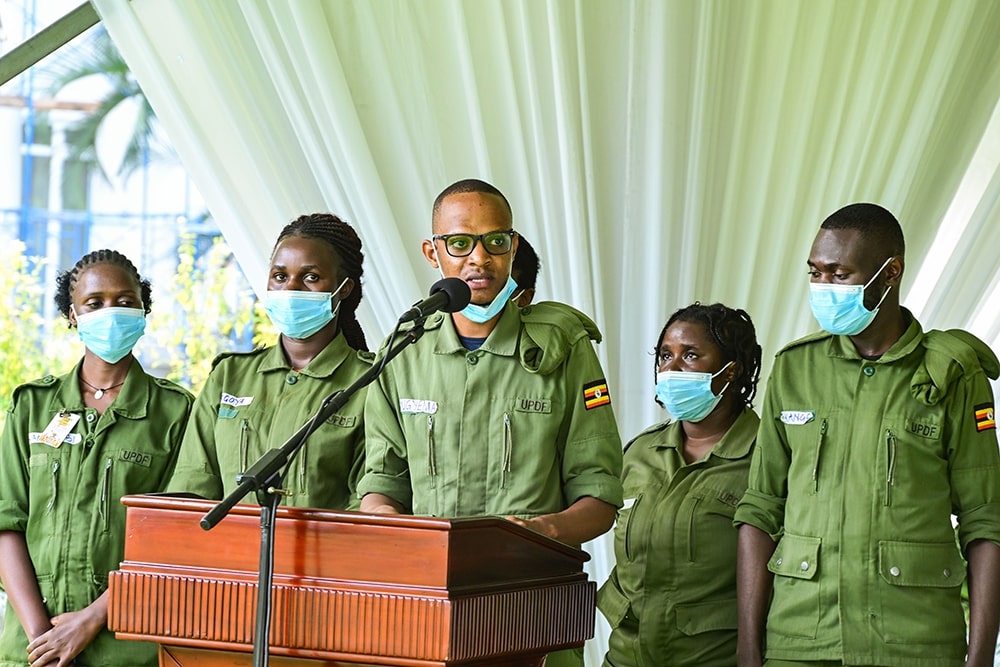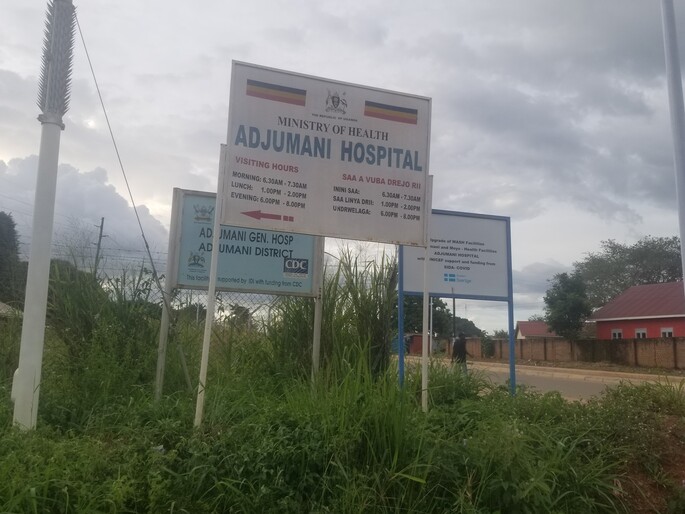(Kampala) – The plight of Uganda’s medical graduates is a national tragedy with no cure as well as a story that could easily pass for a Ugandan drama series.
The government has finally addressed the cries of medical interns who, despite burning the midnight oil and enduring endless hours in lecture halls, have found themselves in the cold, waiting for deployment like a boda-boda waiting for a passenger during a downpour.
Dr. Joyce Moriku Kaducu, the state minister for education and primary education, in a rather anticlimactic announcement on Thursday at Kaunda grounds in Gulu, informed Parliament that out of 2,860 medical interns supposed to be deployed by the Ministry of Health, only 1,270 have been dispatched. The other 1,270, well, they’re left on the shelf like unsold Matooke at Owino Market.
Gilbert Olanya, the Kilak South Member of Parliament, reminded his colleagues of the “forgotten” medical interns. These interns are the latest victims of a nationwide game of hide and seek, where the Ministry of Health hides and the interns seek deployment. It’s a shame, though, that this game has real consequences.
Rumor has it that Northern Uganda’s interns are feeling particularly left out in the cold. A solid 270 of them, to be precise. Gulu University alone has 67 graduates wondering if they’ll ever trade their textbooks for stethoscopes. The rest, from Lira and Arua medical schools, are probably scratching their heads and wondering what went wrong. Did their letters to Santa Claus get lost in the mail?
Speaking of letters, the Uganda Medical and Dental Practitioners Council, along with the Pharmaceutical Society of Uganda, did what any frustrated group would do—they wrote a petition. They submitted it to the Speaker of Parliament, hoping it would be a lifeline. Instead, it was passed around like a hot potato, landing in the Prime Minister’s office and even making its way to the President’s desk. But alas, it seems that even the mighty pen couldn’t get the ink of approval for a budget of UGX 18.8 billion to cover everyone.
Byron Awekonimungu, who graduated from Gulu University with a shiny new degree in surgery and medicine, is understandably bitter. “We worked extremely hard; we graduated as scientists, but we are currently undeployed,” he lamented. “Doctors are supposed to be in hospitals, not on the street.” One can almost see the image of Byron pacing the streets, stethoscope in hand, wondering why his brilliant career is starting off with more questions than answers.
And it’s not just Byron who’s disheartened. Nancy Nyeko Nicole, a graduate from Clark International University, is feeling the pinch too. Since finishing nursing school in June 2023, she’s been at home, twiddling her thumbs. Her parents, who likely threw a big bash when she graduated, are now scratching their heads, wondering when she’ll start bringing in the bacon. “I’ve become a burden at home,” she confessed, echoing the sentiments of many young graduates who find themselves in the same sinking boat.
Uganda’s healthcare system is already stretched thinner than a Rolex in Kikuubo. With one doctor handling between 24,000 to 30,000 patients (compared to the World Health Organization’s recommendation of one doctor per 1,000 patients), the country can ill afford to have freshly trained doctors sitting at home, their skills rusting away like an old panga.
But what’s an intern to do? Moses Komakech, one of the frustrated yet to be deployed interns, is scratching his head too. He’s questioning why Parliament hasn’t considered letting students take up private sponsored internships. “The first thing is that the private internship, or the unpaid medical internship by the government, is also a policy issue because the Ministry of Health has not allowed the private deployment of interns where you go and sponsor yourself,” he points out.
In Uganda, we’re used to being told there’s no money, but this time, the situation has left many speechless. On Sunday, President Museveni dropped the bombshell that the government doesn’t have the UGX 18.8 billion needed to pay for the intern doctors. It’s a bit like hearing that the boda-boda you’ve been waiting for doesn’t have fuel after all. Disheartening, to say the least.
The future of Uganda’s healthcare system hangs in the balance. One can only hope that the government finds a solution soon, before these bright minds decide to take their talents elsewhere—or worse, before they become just another statistic in a country already grappling with a doctor shortage.




















